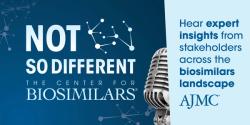© 2026 MJH Life Sciences™ and The Center for Biosimilars - Biosimilars, Health Economics & Insights. All rights reserved.
Dr Hope Rugo: Value Frameworks and Clinical Practice
Hope Rugo, MD, director of the breast oncology clinical trials program at the University of California at San Francisco, discusses guidelines for the treatment of cancer.
Transcript:
In your experience, are value frameworks, such as those developed by NCCN and ASCO, being implemented in clinical practice?
I think value frameworks are being implemented in practice. I think people use guidelines internationally and that they find them very helpful and important.
Interestingly, sometimes people are so concrete with the guidelines [that] it results in more peer-to-peer reviews for patients because they’ll say, “Well you know, you can’t get that drug because it said that they only had 2 lines of therapy there and that patient had 3 lines.” And then we’re like, “Well, it’s not going to make that big of a difference.” Or, they only had 1 and it said the trial was only done in patients that had 2 lines of therapy. You can become very, very concrete in terms of how you interpret those guidelines.
Overall, I think guidelines are important, they give a consensus approach, they take the literature and best practices and provide that information for busy practitioners who are treating many different cancers and provide them essentially with back up.
Also, the guidelines generally provide patient-friendly forms of their guideline information, and that’s incredibly important. We want our patients to be educated as much as possible about what options exist, and it allows patients potentially to participate more in shared decision-making, and to understand when the decisions don’t fit those guidelines.



